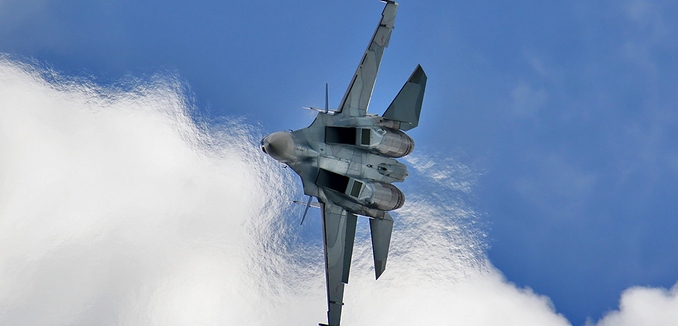The Obama administration said that the proposed sale of Russian fighter jets to Iran would violate the United Nations Security Council resolution that supported the nuclear deal, the Associated Press reported on Thursday.
State Department Spokesman Mark Toner said that the purchase of the aircraft as part of an $8 billion Russian arms package would constitute a breach of U.N. Security Council resolution 2231, which stipulates that transfer of “combat aircraft” to Iran is prohibited unless it is approved by the council “in advance on a case by case” basis. Russia’s Su-30SM jets, which Iran seeks to buy, are similar to American F-15E fighter bombers.
Iran’s Defense Minister Gen. Hossein Dehghan said last week that the Islamic Republic intends to upgrade its air force and purchase an as of yet undetermined number of Russian jets. There was no specified timeline mentioned for the delivery of the planes, which Dehghan indicated Iran would be involved in manufacturing.
For the next five years, US or other P5 member could block this per UNSC Res 2231 https://t.co/D4eM8hq4cE
— Michael Singh (@MichaelSinghDC) February 10, 2016
In addition to the nuclear deal, which placed temporary limits on Iran’s nuclear program in exchange for over $100 billion in sanctions relief, France, Britain, Russia, China, the United States and Germany also reach an understanding to phase out embargoes against Iranian weapons deals and ballistic missile work “after periods of good behavior,” according to the AP. However, the embargoes are still currently in effect, and the U.N. determined in December that Iran violated Security Council resolution 1929 with its October test of a precision-guided ballistic missile. According to a report by the United States Institute of Peace, “Iran has the largest and most diverse ballistic missile arsenal in the Middle East.” Ballistic missiles are capable of delivering nuclear warheads.
An Iranian official who spoke to Reuters in May 2014 said that when the U.S. brought up Iran’s ballistic missile program during the early stages of the negotiations that led to the nuclear deal, Iranian Foreign Minister Mohammad Javad Zarif “laughed and ignored the remarks.” After the nuclear deal was concluded in July, the Islamic Republic announced plans to carry out ballistic missile tests later in the year. Iranian President Hassan Rouhani said soon afterwards that Iran would refuse to abide by any resolution that would limit its ballistic missile development. After its October missile launch, Iran conducted a second ballistic missile test in November.
[Photo: Dmitry Terekhov / YouTube ]




